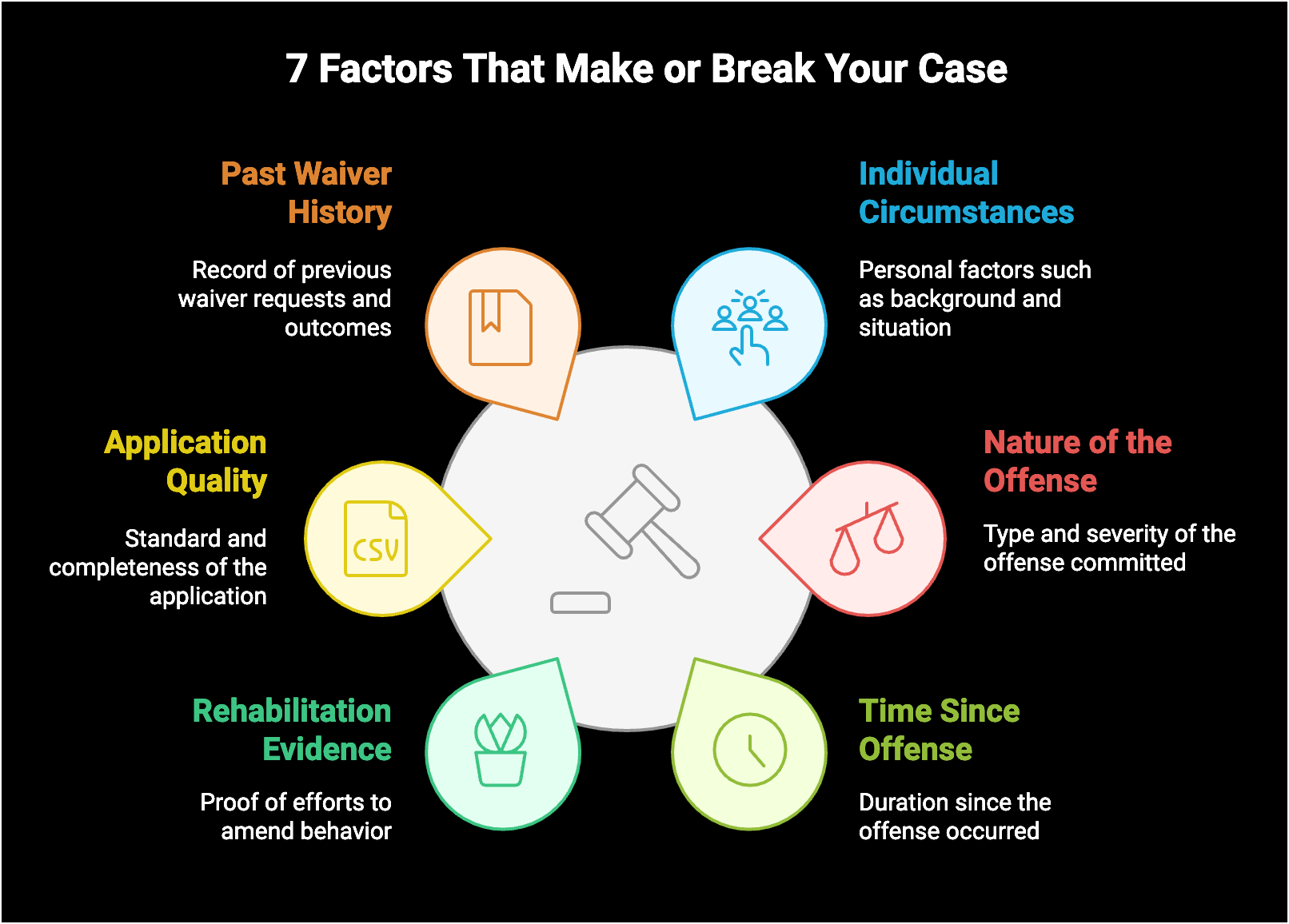Getting approved for a U.S. Entry Waiver depends on seven critical factors that U.S. Customs and Border Protection (CBP) considers during the application process. Understanding these factors is crucial for anyone seeking to overcome inadmissibility issues and enter the United States.

1. Individual Circumstances
Your unique life story significantly impacts your application’s success. CBP examines multiple aspects of your profile, including employment history, family connections, and reasons for travel. A successful application must reflect your specific circumstances rather than following a generic template.
2. Nature of the Offense
The type of offense on your record plays a determining role in your application’s outcome. Minor assaults from your youth are viewed differently than serious crimes. Drug trafficking and violent offenses present more significant challenges for approval, while immigration violations like visa overstays have specific requirements that must be addressed.
3. Time Since Offense
The passage of time since your conviction significantly influences your chances of approval. A conviction from decades ago, followed by a clean record, presents a much stronger case than a recent offense. For example, an assault conviction at age 18 carries different weight when you’re now 54 with no subsequent infractions.
4. Rehabilitation Evidence
Proving rehabilitation is essential for demonstrating reduced risk to CBP. Your application must show meaningful personal transformation since the offense. Supporting documentation like reference letters, employment records, and community service history serves as concrete evidence of positive change.
5. Application Quality
The technical quality and consistency of your application significantly impact its success. Each component must work together to present a coherent narrative to CBP. A well-crafted application maintains consistency across all sections, minimizing potential red flags that could jeopardize approval.
6. Past Waiver History
Previous interactions with the waiver system affect your current application. If you’ve been denied before, your new application must address the reasons for that denial. While past denials can impact your case, a properly prepared application that addresses previous issues can still succeed.
7. CBP Officer Discretion
Even with an approved waiver, entry decisions ultimately rest with individual CBP officers at border crossings. The waiver is your eligibility documentation, but the officer you encounter maintains final authority over entry permission.
Understanding Your Path Forward
While there are no guarantees in the waiver process, understanding these seven critical factors positions you to build a stronger case. Each factor requires careful consideration and proper documentation to support your application.


